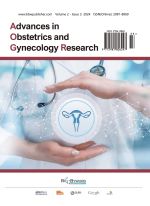Abstract
Objective: To analyze the factors affecting the occurrence of psychological imbalance in chemotherapy patients after modified radical surgery for breast cancer. Methods: Retrospectively analyzed the clinical data of 285 post-chemotherapy patients with breast cancer who received chemotherapy treatment in a hospital between November 2022 and December 2023 and applied to analyze the incidence rate of psychological imbalance and influencing factors by using logistic regression analysis. Results: Psychological imbalance occurred in 178 cases of 285 post-chemotherapy patients after modified radical mastectomy for breast cancer, accounting for 62.46%. Comparing the patients in the occurrence group and the non-occurrence group in terms of age, family history, marital status, place of residence, and per capita monthly income of the family, the differences were not statistically significant (P > 0.05), whereas in terms of high school or lower education level, low social support, and having a burden of self-feeling, the proportion of the occurrence group was higher than that of the non-occurrence group, and the differences were statistically significant (P < 0.05). Conclusion: The risk of psychological imbalance is higher in patients undergoing chemotherapy after modified radical mastectomy for breast cancer, while high school and below educational background, low social support, and having self-perceived burdens are the main risk factors (OR > 1, P < 0.05).
References
Li J, Shi M, Yue X, et al., 2024, Research on the Current Status of Psychosocial Adaptation of Radical Mastectomy Patients with Breast Cancer and Its Relationship with Family Caring and Social Support. Clinical Medicine Practice, 33(6): 466–470.
Wang F, 2024, Effects of Structured Home Rehabilitation Nursing on Patients’ Hope Level, Family Function and Quality of Life After Radical Mastectomy for Breast Cancer. Henan Journal of Surgery, 30(3): 191–193.
Yang N, 2024, The Effect of Perioperative Mind Map-Based Health Education on Patients’ Self-Recovery Management Ability and Quality of Life During Radical Mastectomy for Breast Cancer. Henan Journal of Surgery, 30(3): 102–105.
Nie Y, Han X, Li T, et al., 2024, Application of Group Psychological Intervention Guided by Self-Expression Theory in Radical Mastectomy Patients with Breast Cancer. Qilu Nursing Journal, 30(10): 42–45.
Sun Z, Sun L, Zhang J, et al., 2024, Effects of Simultaneous Cognitive Intervention for Both Spouses on Cancer-Caused Fatigue and Quality of Life in Breast Cancer Chemotherapy Patients. China Maternal and Child Health, 39(10): 1890–1893.
Wang X, Su L, 2023, Exploring the Effect of Comfort Nursing on Perioperative Psychological Status and Pain in Patients Undergoing Modified Radical Mastectomy for Breast Cancer. Proceedings of the National Rehabilitation Nursing Academic Exchange Conference, Yulin Medical Association, 5.
Pang L, 2022, Impact of Family-Centred Model on Family Care Scores and Rehabilitation Outcomes of Patients After Modified Radical Mastectomy for Breast Cancer. Heilongjiang Medicine, 46(20): 2506–2508.
Wang Y, Shi B, Chen Y, et al., 2022, Effect of Psychological Care Based on Affectionate Guidance on Patients After Modified Radical Mastectomy for Breast Cancer. Psychological Monthly, 17(5): 98–100.
Wu X, Xu Y, 2021, Goal-Oriented Nursing Care for a Patient with Stage I Prosthesis Reconstruction After Modified Radical Mastectomy for Breast Cancer. Chinese Rural Medicine, 28(24): 81–82.
Cheng Y, Chen N, Wang M, et al., 2021, Application of Comprehensive Guided Care Based on the Concept of Humanisation in Patients Undergoing Modified Radical Mastectomy for Breast Cancer. Health Care Medicine Research and Practice, 18(6): 114–117.
